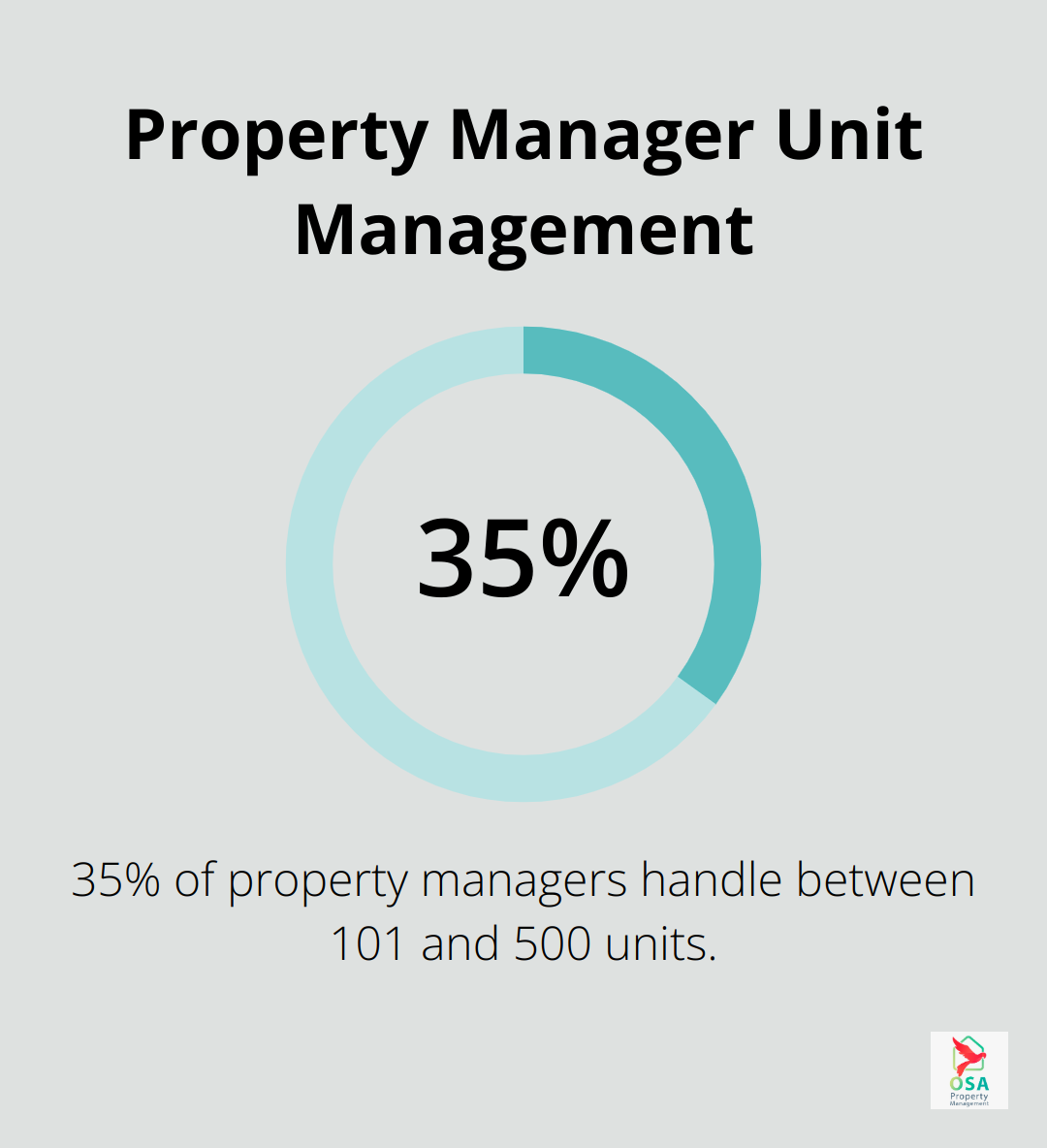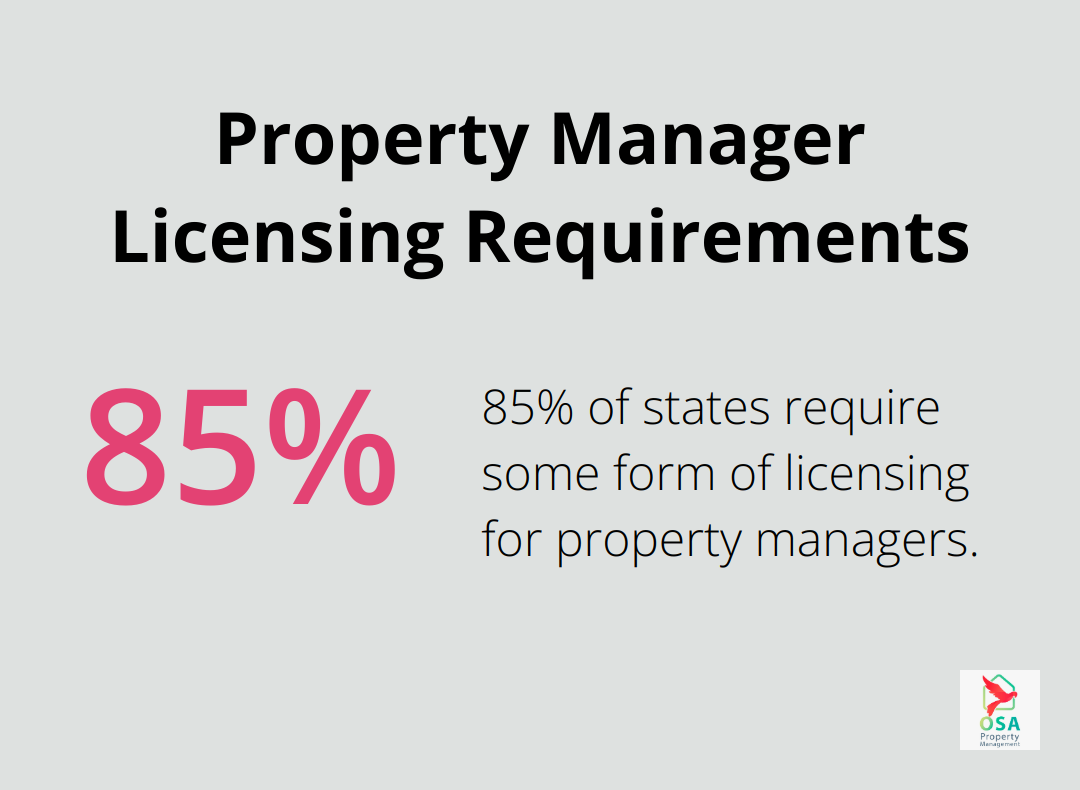Starting a property management firm can be an exciting and rewarding venture. At Osa Property Management, we’ve seen firsthand how this industry offers tremendous growth potential for entrepreneurs.
This guide will walk you through the essential steps on how to start a property management firm, from market research to team building. We’ll share practical insights to help you launch and grow your business successfully.
How to Research Your Market and Plan Your Business
Identify Your Target Market
The first step in your market research is to identify your target market. This involves determining the types of properties you’ll manage and the clients you’ll serve. You might focus on residential properties, commercial buildings, or vacation rentals. Each niche has its own unique challenges and opportunities.
A 2024 survey by the National Association of Residential Property Managers revealed that 35% of property managers handle between 101 and 500 units. This statistic suggests ample room for growth in the industry, especially for firms that can efficiently manage a large number of properties.

Analyze Local Competition and Trends
After you identify your target market, you must analyze your local competition and market trends. Examine established property management firms in your area and assess their strengths and weaknesses. What services do they offer? How do they price their services? What types of properties do they manage?
Market trends are equally important. The global property management market is projected to reach $28 billion by 2028, growing at a compound annual growth rate (CAGR) of 7.5%. This indicates a healthy growth trajectory for the industry.

Develop Your Business Plan
With your market research complete, it’s time to develop a comprehensive business plan. This document will serve as your roadmap for launching and growing your property management firm.
Your business plan should include:
- Executive summary
- Company description
- Market analysis
- Organization and management structure
- Services offered
- Marketing and sales strategy
- Financial projections
A comprehensive property management business plan should include these key elements to create a solid foundation for your company.
Calculate Startup Costs and Funding Options
You’ll need to calculate your startup costs and explore funding options. Startup costs for a property management firm can vary widely depending on factors like your location, the size of your operation, and the services you’ll offer.
Common startup costs include:
- Office space and equipment
- Property management software
- Licensing and certification fees
- Insurance
- Marketing expenses
As for funding, you have several options. You might use personal savings, seek a small business loan, or look for investors. The SBA offers various loan programs that could suit property management startups.
Thorough market research and careful planning are essential steps in starting a successful property management firm. Understanding your market, analyzing trends, and creating a solid business plan will position you well to launch and grow your business in this dynamic industry.
Now that you’ve laid the groundwork for your property management firm, it’s time to navigate the legal requirements and licensing processes necessary to operate legally and professionally in your chosen market.
Navigating Legal Requirements for Property Management
Obtaining Necessary Licenses
The first step to start a property management firm is to obtain the required licenses and certifications. These requirements vary by state and sometimes even by city. For example, California mandates property managers to have a real estate broker’s license, while Florida requires a Community Association Manager (CAM) license for managing certain types of properties.
You should check with your state’s real estate commission or department of business and professional regulation to determine the specific requirements for your area. Often, you’ll need to complete pre-licensing courses and pass an exam. The National Association of Residential Property Managers (NARPM) reports that 85% of states require some form of licensing for property managers.

Registering Your Business
After you secure the necessary licenses, you must register your business entity. The most common options for property management firms are Limited Liability Companies (LLCs) and corporations. An LLC is owned by one or more individuals, while a corporation is owned by its shareholders.
We recommend you consult with a local business attorney or accountant to determine the best structure for your specific situation. They can guide you through the registration process, which typically involves filing articles of organization with your state’s secretary of state office.
Securing Insurance Coverage
Proper insurance coverage protects your property management firm from potential risks. At minimum, you’ll need general liability insurance and professional liability (errors and omissions) insurance. Commercial property premiums rose an average of 10.1% in the first quarter of 2024, according to the latest data from the Council of Insurance Agents & Brokers.
You should consider additional policies such as worker’s compensation (if you have employees) and cyber liability insurance to protect against data breaches. We suggest you shop around and compare quotes from multiple insurance providers specializing in property management coverage.
Cutting corners on insurance can lead to devastating financial consequences down the line. It’s always better to be over-prepared when it comes to protecting your business (and your clients’ properties).
Familiarizing Yourself with Local Laws
Property managers must have a thorough understanding of local landlord-tenant laws. These laws govern various aspects of property management, including lease agreements, security deposits, evictions, and fair housing practices.
You should study your state’s landlord-tenant act and any local ordinances that may apply to your area. Many property management associations offer courses or resources on local laws, which can be invaluable for new property managers.
Now that you’ve addressed the legal requirements for your property management firm, it’s time to focus on building a strong team to support your business operations. The next section will guide you through the process of hiring experienced property managers, recruiting maintenance staff, and establishing key partnerships.
Building a Strong Property Management Team
Hire Experienced Property Managers
When you start a property management firm, you must hire competent property managers. Look for candidates with a proven track record in the industry. Experience is crucial in handling complex tenant issues and maintaining high occupancy rates.
During interviews, ask candidates about their knowledge of local landlord-tenant laws, their conflict resolution approach, and their familiarity with property management software. Include a practical skills assessment in your hiring process to evaluate their problem-solving abilities in real-world scenarios.
Create a Reliable Maintenance Network
A responsive maintenance team is essential for tenant satisfaction and property upkeep. Many property management firms opt to build a network of trusted contractors instead of hiring full-time maintenance staff. This approach allows for more flexibility and can be more cost-effective (especially for smaller firms).
Establish relationships with local plumbers, electricians, HVAC technicians, and general contractors. Negotiate preferential rates for your properties in exchange for consistent work. Effective maintenance strategies can significantly impact costs, as turnover costs for multifamily properties average $4,000 per unit.
Implement Comprehensive Training Programs
Ongoing training is vital in the ever-changing landscape of property management. Create a structured training program for all team members, covering topics such as customer service, legal updates, and technology use. The Institute of Real Estate Management (IREM) offers various certification programs that can enhance your team’s skills and credibility.
Invest in regular team-building activities and workshops to foster a collaborative work environment. Property management firms that prioritize team development often see improved employee retention rates.
Establish Partnerships with Real Estate Agents
Form strategic partnerships with local real estate agents to expand your network and increase your property portfolio. These partnerships can provide a steady stream of new properties to manage and potential clients. Offer incentives (such as referral fees) to real estate agents who bring new business to your firm.
Recruit Administrative Support Staff
As your property management firm grows, you’ll need to hire administrative support staff to handle day-to-day operations. Look for detail-oriented individuals with strong organizational skills and experience in customer service. These team members will play a key role in maintaining smooth operations and ensuring client satisfaction.
Final Thoughts
Starting a property management firm requires careful planning, legal compliance, and strategic team building. We covered the essential steps to launch your business, from market research to team assembly. Success in this industry depends on your ability to adapt to changing market conditions and improve your services continuously.
The real estate landscape evolves constantly, so you must stay ahead of trends to maintain a competitive edge. We recommend you attend industry conferences, join professional associations, and invest in training programs for yourself and your team. At Osa Property Management, we understand the challenges and rewards of running a successful property management firm (with over 19 years of experience managing properties in Costa Rica).
Take action today and start turning your property management dreams into reality. With dedication, hard work, and the right strategies, you can build a thriving business that provides value to property owners and tenants alike. If you want to learn more about how to start a property management firm, explore our services to see how we’ve built our business.

